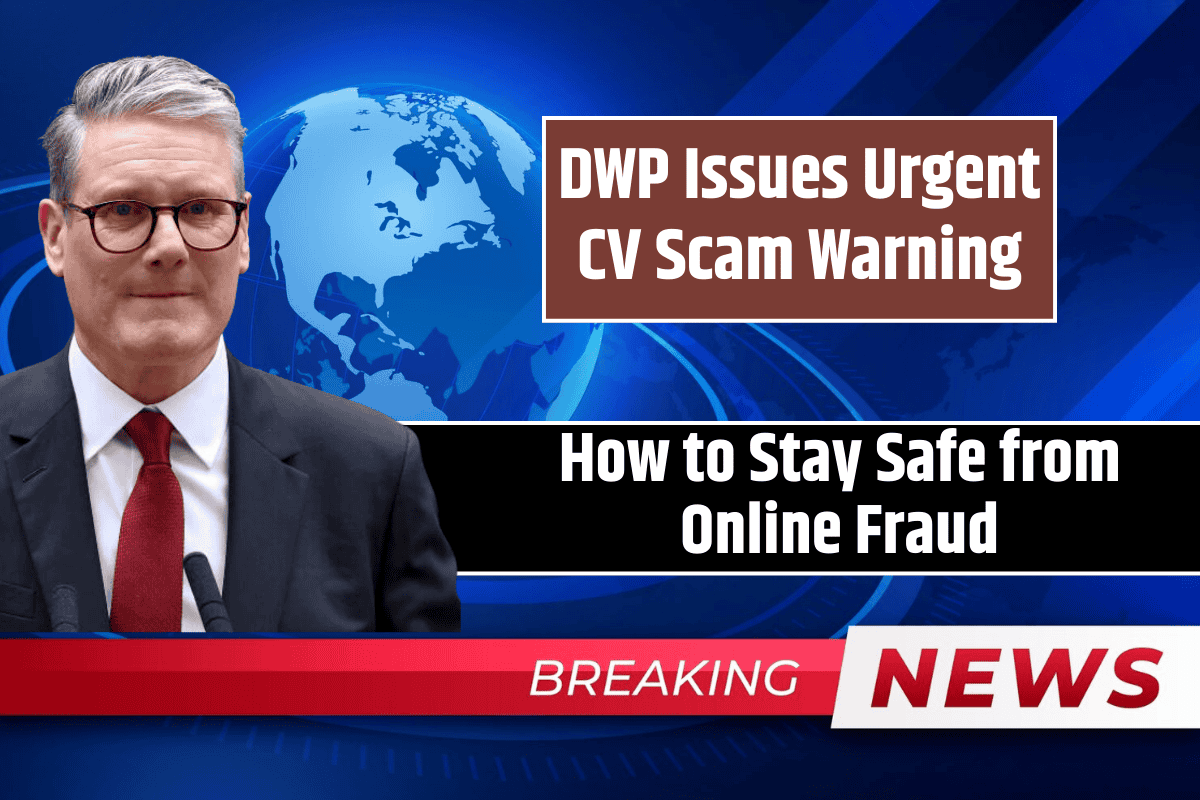The Department for Work and Pensions (DWP) has issued a new warning to anyone with a CV, urging them to be careful when sharing personal information online. According to the alert, scammers are targeting job seekers by stealing personal details from CVs to commit identity fraud.
This warning was shared on social media platform X (formerly Twitter), and it highlights the growing danger of online scams, especially during job applications.
What Did the DWP Say?
In a video shared on X, a voiceover said:
“Protect yourself from online identity fraud. When sharing your CV online, remember scammers use your personal details to commit identity fraud.”
The DWP clearly advised people not to include these details on their CVs:
- Full home address
- Date of birth
- National Insurance number
These details are not needed by recruiters at the early stage of job applications, but fraudsters use them to steal your identity.
What Else Should You Avoid Sharing?
The warning follows an earlier DWP post reminding people to avoid sharing sensitive information online or through direct messages. This includes:
- Your full name and date of birth
- National Insurance number
- Answers to security questions
Once scammers have this information, they can use it to open accounts in your name, apply for loans, or even access your bank account.
How Can You Stay Safe Online?
To protect yourself, the DWP and Action Fraud recommend taking the following steps:
- Don’t share personal details on public CVs
- Keep your security answers and sensitive info private
- Use up-to-date antivirus software on your devices
- Install a firewall
- Be alert to phishing emails, which often look like real messages from banks or companies
Even one small mistake, like posting your CV without editing it, could lead to major problems if fraudsters find it.
Why Is This Warning Important?
As more people apply for jobs online and upload their CVs to websites, scammers are finding new ways to take advantage. The DWP’s message is a reminder that protecting your personal information is just as important as preparing your CV.
Recruiters don’t need your sensitive information at the start of the hiring process, so it’s best to keep it off your CV entirely. Only provide these details later, once you’re certain the offer is genuine.
FAQs
What details should I not include on my CV?
Avoid including your full home address, date of birth, National Insurance number, or security question answers. Recruiters don’t need these at the application stage.
Why are scammers targeting CVs?
Scammers use the personal details on CVs to commit identity fraud, such as opening bank accounts, taking out loans, or accessing your money.
How can I protect myself from online CV scams?
Keep sensitive information off your CV, use updated antivirus software, avoid clicking suspicious links, and never share personal data in public forums or DMs.
What is phishing and how does it relate to CV scams?
Phishing is when scammers send fake emails to trick you into giving personal information. Many CV scams begin with phishing to collect more data.
Where can I find more information on staying safe online?
You can visit Action Fraud’s official website for tips on preventing identity theft and staying safe while job hunting online.






